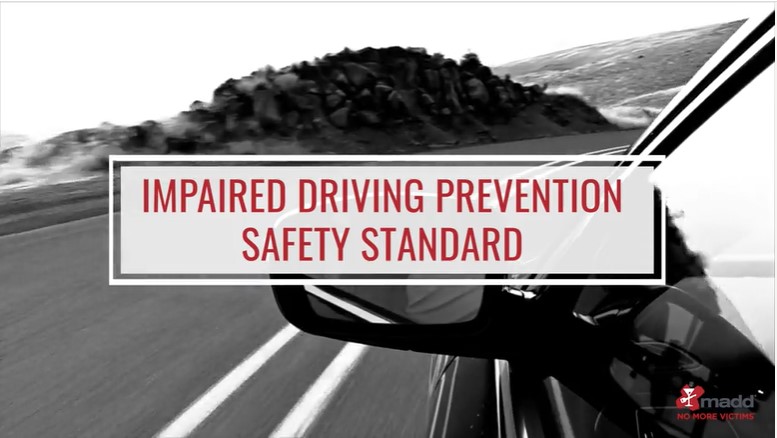On behalf of millions of victims and survivors of drunk and impaired driving, Mothers Against Drunk Driving (MADD) is urging federal regulators to take swift action to set a rule for impaired driving prevention technology on all new cars.
MADD’s call to action, which includes a detailed timeline of auto technology development that spans nearly two decades, was published on regulations.gov along with thousands of other comments to an Advance Notice of Proposed Rulemaking (ANPRM). The National Highway Traffic Safety Administration (NHTSA) posted the notice in January, ahead of a November 2024 deadline to issue a new rule required in the 2021 Bipartisan Infrastructure Law.
MADD began advocating for passive, unobtrusive drunk driving prevention technology in 2006. Since then, more than 150,000 people have been killed in alcohol-related crashes, according to NHTSA data. Equipping all cars with drunk driving prevention technology would save more than 10,000 lives a year, according to the Insurance Institute for Highway Safety.
“After 15 years of raising and debating the same potential roadblocks, policy questions and ‘what if’ scenarios, industry, government, victims and survivors, public health and traffic safety advocates, privacy experts, and other stakeholders must now come together to find common ground and real solutions forward. Every day we delay, more are needlessly killed and seriously injured,” MADD wrote. “As our nation continues to see historic increases in roadway fatalities, NHTSA must take deliberate action to end this public health crisis, starting with what works now, charting a course for innovation and progress toward the achievable goal of no more victims.”
MADD urged NHTSA to issue a final rule that includes a “roadmap” leading to required technology that can detect and prevent all deadly impairments – drunk, drugged, distracted, and drowsy driving. And while the Advance Notice of Proposed Rulemaking did not include technologies to prevent driving while impaired by drugs other than alcohol, MADD called on NHTSA to consider advancing auto technologies that could stop crashes caused by drug-impaired driving.
“As research continues to attempt to identify per se impairment levels, roadside testing, impairment versus presence, and accurate data collection on this critical issue, MADD urges NHTSA to create a roadmap to eliminate drug-impaired driving where advanced driver assistance technologies can be activated to reduce crash risk and severity, regardless of the impairing substance,” MADD wrote.
MADD also provided detailed responses to privacy questions raised in the ANPRM, restating the organization’s position that any data collected through impaired driving prevention technology should be used only for the purpose of preventing drunk and/or impaired driving. Consumer data should not be used for marketing or advertising purposes; nor should it be used by law enforcement. The law is meant to save lives and prevent injuries, not be punitive.
MADD concluded: “This law has encouraged continued innovation, which will allow NHTSA to write a flexible rule to accommodate various kinds of life-saving technologies. MADD victims and survivors will continue to work with the Administration and bipartisan leaders in Congress. … We look forward to a day when drunk and impaired driving is a thing of the past. A world with no more victims is here.”
The provision in the Bipartisan Infrastructure Law (SEC. 24220) that requires advanced drunk and impaired driving prevention technology is known as the Honoring Abbas Family Legacy to Terminate (HALT) Drunk Driving Act. For more information, visit madd.org/haltact/



